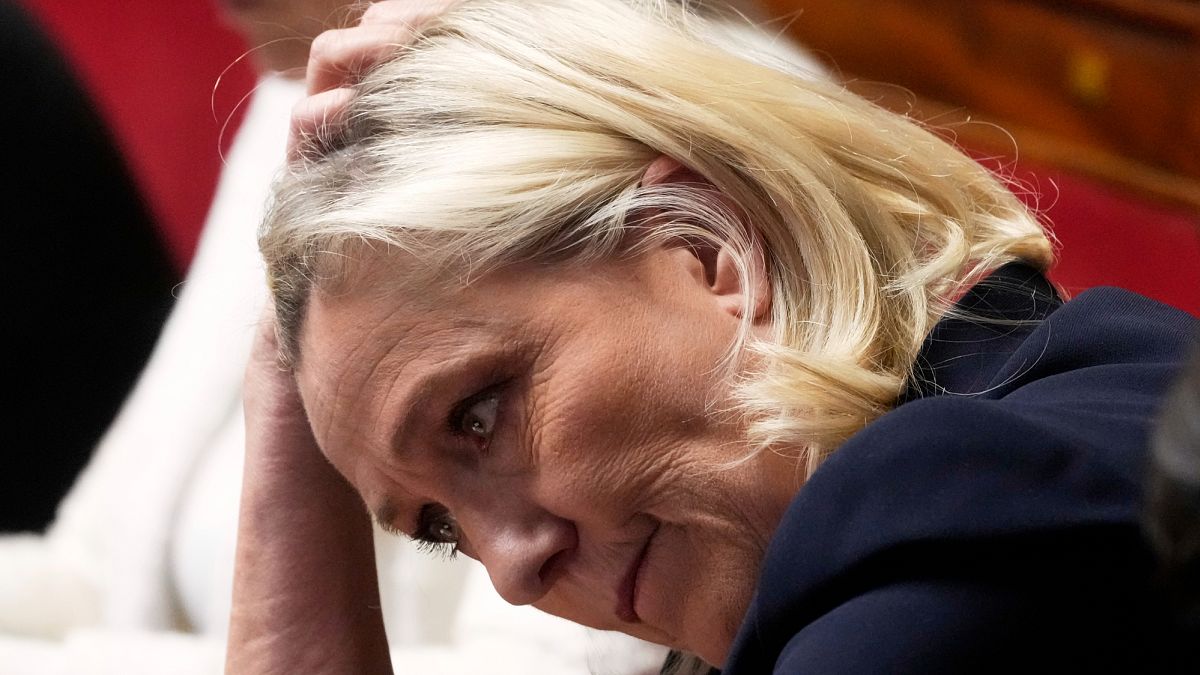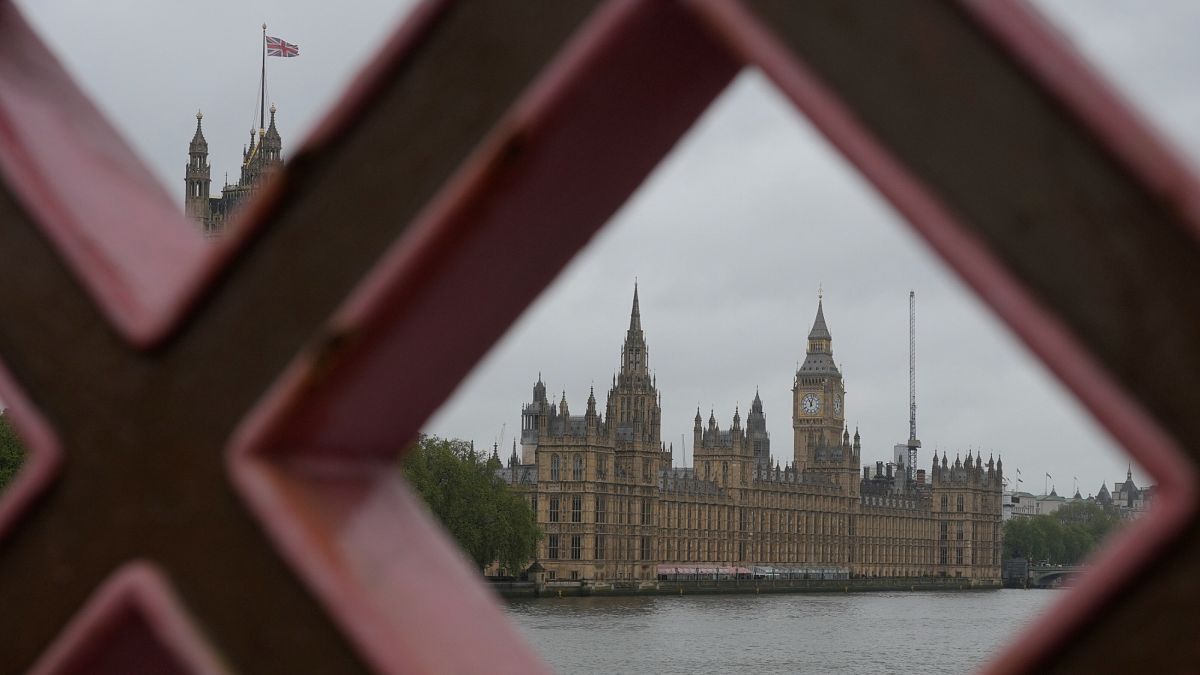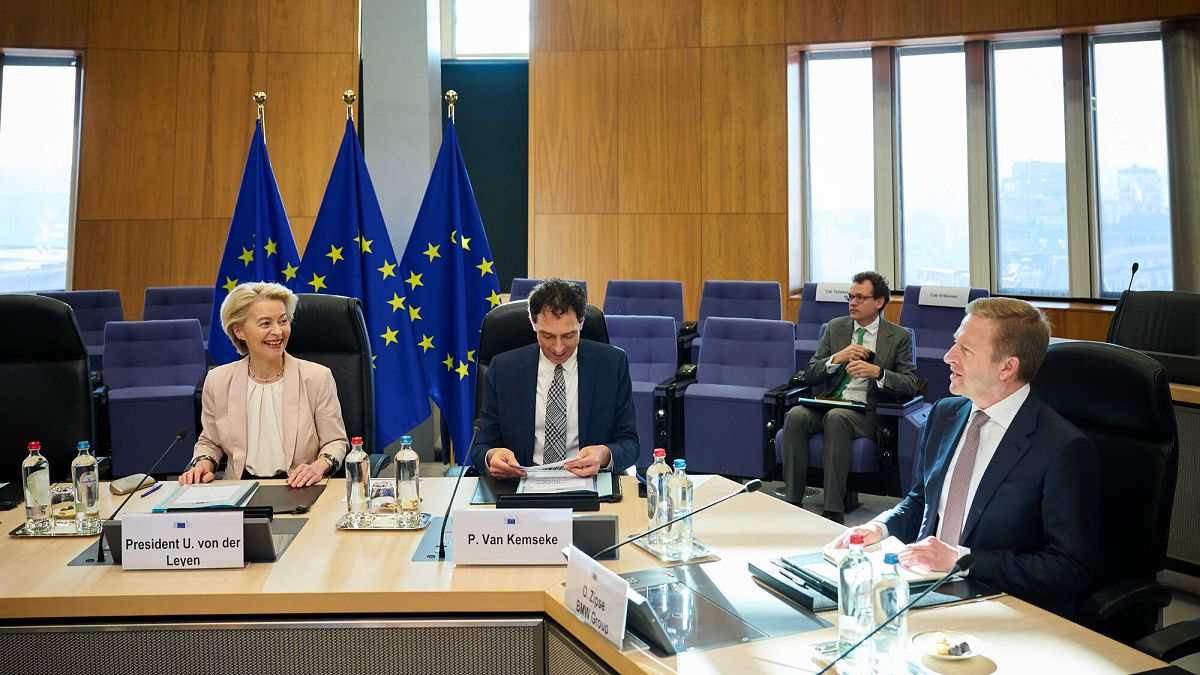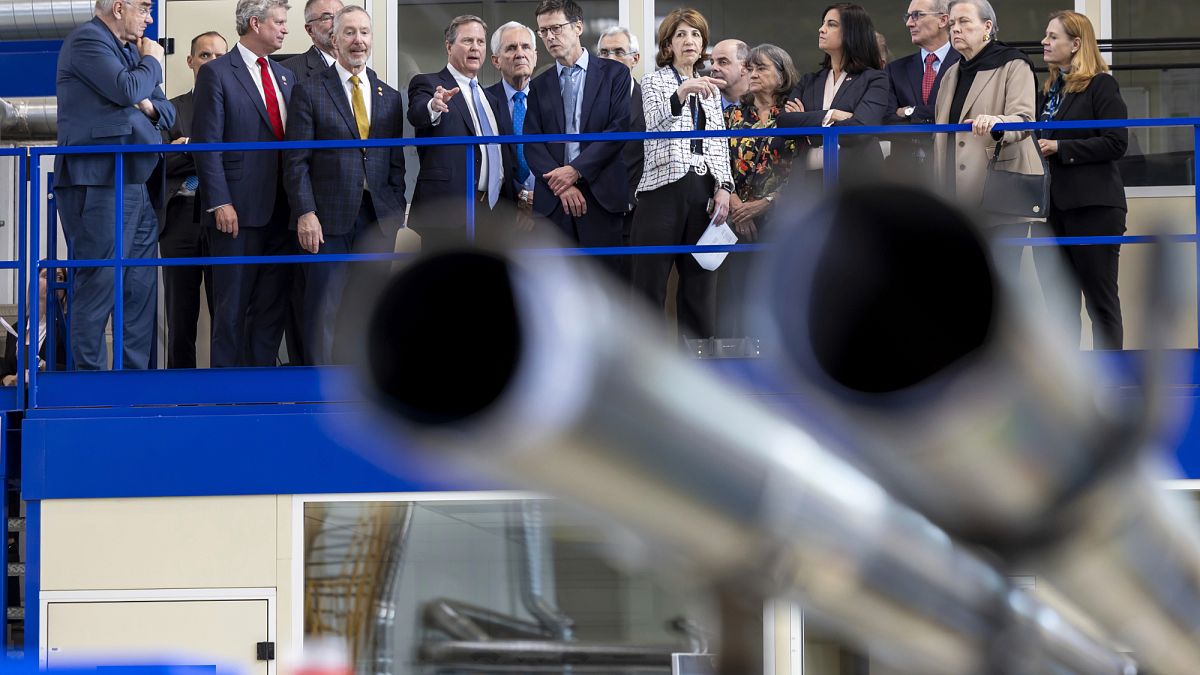This edition of our weekly talk show focuses on the growing challenges facing the European economy: declining competitiveness, increasing potential for conflict in trade with China and diminishing scope for the public sector.
The challenges that have been weighing on the European economy have been building up for years. And Europe is becoming increasingly aware of its lack of competitiveness. This week's EU summit once again addressed the question of how to boost the economy.
David Rinaldi, director of studies and policy at FEPS, Almut Möller, Director for EU and Global Affairs at the European Policy Centre, and Niclas Poitiers, Research Fellow at the economic think tank Bruegel, discussed this with Méabh McMahon.
Low growth and increasing global protectionism - the EU economy is fighting for survival. Germany's European economic engine is stuttering for the second year in a row. And France is cutting spending and raising taxes - everyone is having to tighten their belts dramatically.
Meanwhile, the US elections are just around the corner and some are warning that a Donald Trump victory could further damage Europe's economy.
With food prices and rents rising from Athens to Madrid, Europeans are feeling the pressure. But governments have little room for manoeuver - and further austerity measures could slow down growth even more in the coming years.
Meanwhile, the mood in the economy is one of concern. And this week, the insurance company Allianz Trade published new data warning of a sharp rise in global corporate insolvencies. They estimate that over 1.6 million jobs in Europe and North America could be at risk next year.
Is a recession looming?
Among the things that are not helping at the moment are global uncertainties, above all the outcome of the US presidential election in two and a half weeks' time. In Europe, it is not only many politicians who fear Donald Trump's return to the White House, but also numerous economic experts. And not just because of Trump's political style, but because of his economic program. The head of the Bundesbank, Joachim Nagel, for example, said:
“Trump's victory could be accompanied by drastic tariff increases and an expansive fiscal policy. This could lead to a noticeable slowdown in growth in the eurozone and in Germany.”
Uncertainties in trade relations with China are also weighing on the economic outlook in Europe. The European Council has given the green light to punitive tariffs on Chinese electric cars, a success for Commission President Ursula von der Leyen, despite explicit opposition from Germany.
The aim is to encourage Europeans to buy cars “Made in Europe”. In return, Beijing struck back and imposed punitive tariffs on European brandy and cognac. How will this trade war play out? And will Brussels' decision ultimately do more harm than good?
Finally, the panel discussed an old idea in financial policy that is becoming popular again in view of empty budgets: The rich and super-rich should be asked to pay extra. The new conservative French government is planning a return to a wealth tax, while the Social Democrats in Germany want to include a heavier burden on the wealthy in their election manifesto. And at international level, the G20 states want to examine a targeted tax on billionaires.
Do such measures make sense? Is this primarily about plugging budget holes or about tax justice?

 5 months ago
58
5 months ago
58






 We deliver critical software at unparalleled value and speed to help your business thrive
We deliver critical software at unparalleled value and speed to help your business thrive






 English (US) ·
English (US) ·